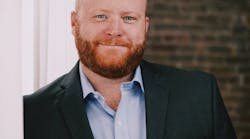Recently I had a conversation with Bryan Jensen, a principal with York, Pa.-based St. Onge Co., about the issue of consultants. We ended up talking about the reliability of "experts" who offer solutions that result in recommendations for further products and services. There are, we agreed, two types of consultants: those who have a financial connection to the recommendations and those who do not.
I’m not sure we used the word "ethical" in our conversation, but the expression “independence” kept coming up.
Before we go further, you should understand the underpinnings of this conversation. Bryan is a friend and St. Onge is a company for which I've done consulting work. Moreover, St. Onge is not just some consulting firm that churns out proposals with the hope of gaining a few assignments. They're high-end engineering and supply chain experts who have done work for more than one-third of Fortune 100 companies. (Visit www.stonge.com and click on the client list.) Bryan has also graciously and without pay, contributed superior articles related to supply-chain issues in this magazine. I invited those contributions because I thought, "Why shouldn’t HARDI members hear it from the very best?"
The impetus for the conversation occurred because a minor competitor of St. Onge announced at a recent trade show that they would become distributors of products that they might recommend. In short, they were putting their audience on notice that they would have vested interests in the solutions they offered.
Internally, St. Onge reaffirmed their commitment to independence. They have no financial link to any companies they might recommend, even though they certainly know executives, products and services at the companies they offer as viable solutions. For St. Onge, the ethical high road was to maintain their independence and not "drink the Kool-Aid" of the integrators.
All of us use consultants at one time or another, although other names pop up — freelancers, independence experts, outside help — when we seek their advice. The term is almost irrelevant. What we need is expertise that provides the best objective assessment of the problem AND solutions to those issues.
The crux of the matter is, of course, how "objective" is the recommendation? Can someone actually make a recommendation when you know that they receive some compensation based on their opinions?
The starting point is very simple. You MUST know that there is a financial connection, no matter how tacit or minor. In some cases, failure to disclose a connection can actually lead to legal issues. In the case of St. Onge, I once recommended them to a well-known HARDI distributor who had some warehouse issues. I mentioned my connection to St. Onge. Eventually, St. Onge satisfactorily completed a project for the distributor. I did not then, nor now, receive any compensation for the referral, unless you consider a "thank you" to be an issue. What I saw was a very smart distributor who I like and respect, and put him in touch with my friend at this exceptional consulting firm.
However, not informing a client or customer that you have a financial interest in any recommendation is simply wrong.
Alan Weiss e-mailed me with a blunt view on this subject:
"It is unequivocally unethical for a consultant to recommend anyone to a client with whom they have any kind of financial interest or arrangement. The client believes he or she is receiving objective advice, for which the consultant is already being paid. To do otherwise, and not disclose the conflict, is wrong. It's as simple as that."
In case you don't know Weiss (summitconsulting.com), many consider him to be a guru in the consultant world, pointing the way with several well-known and highly regarded books on the subject. (I confess. I've bought his books.)
So what do you do if you know that the consultant you hired has a vested interest in the recommendation? To dismiss it out of hand might be overkill, presuming they told you about the connection. Obviously, if you find out somehow that there is a connection and no one told you, run from the consultant.
Knowing there is a financial link probably requires a higher degree of circumspection on your part. The advice might still be solid, but it will require you to be more thorough in your reasoning and more pointed in your questions. It might even require getting a second opinion, which can be both time-consuming and expensive.
Other factors that come into play influence us, whether we admit it or not. Friendship, length of the relationship, communality (from schools and geographic area to shared experiences), a powerful and personal referral— these all matter because they affect the issue of 'do I trust the person as well as the recommendation.'
Then what? Put on your thinking cap, assess the information in as objective a fashion as possible and then go with what you firmly believe is the best choice for yourself and your business. After the project is completed, you'll know whether there’s reason to invite the consultant for another visit.
HVACR Distribution Business welcomes letters to the editor. Please send correspondence to:
Tom Peric, Editor
2040 Fairfax Avenue
Cherry Hill, NJ 08003
856/874-0049
or e-mail [email protected]





